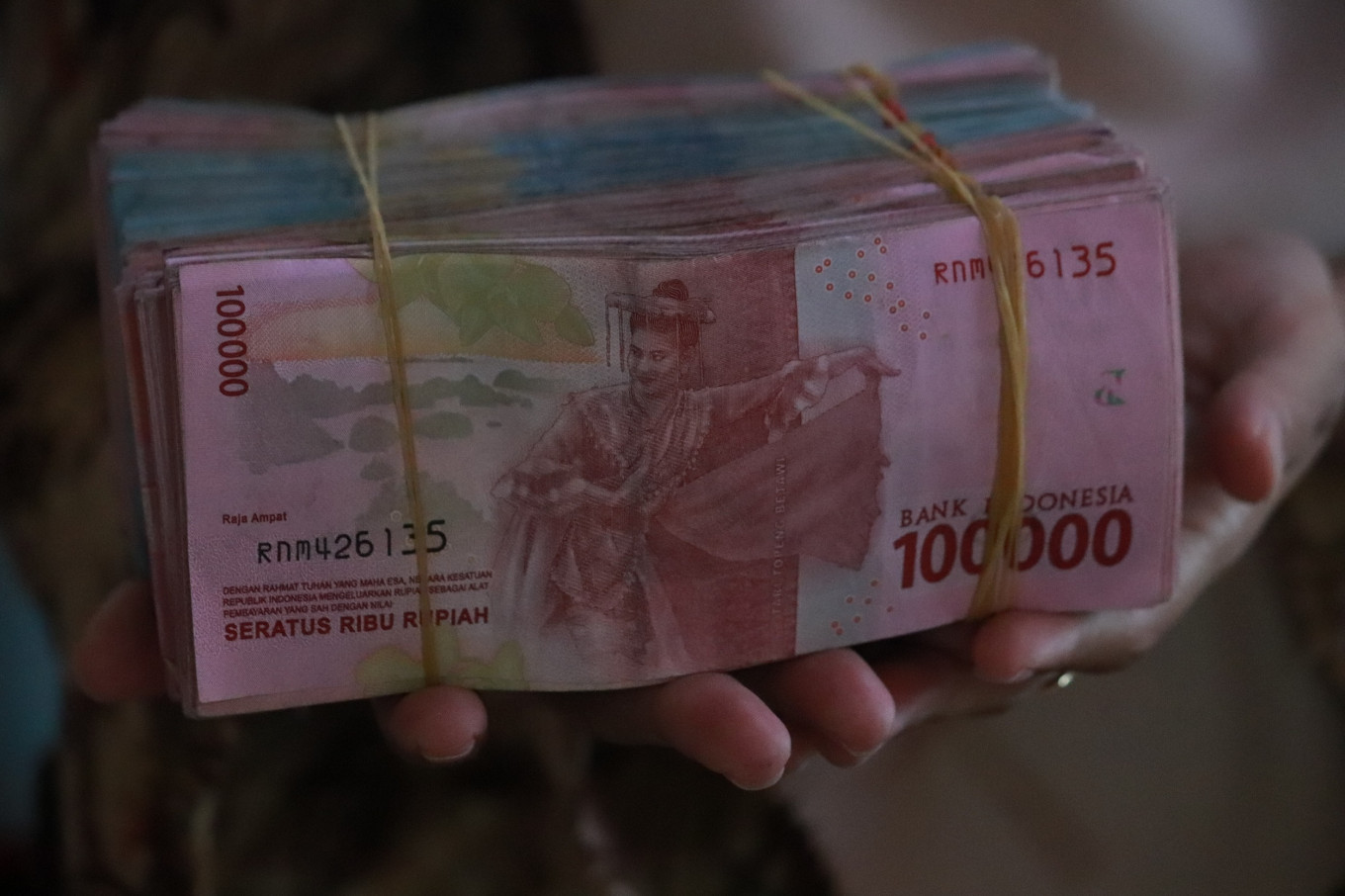The ‘pinjol’ trap: The horrors of payday loans in pandemic-stricken Indonesia
Many Indonesians are drowning in overbearing loans and intimidation attacks after taking out online loans to survive.
Change Size

I
magine the following situation: After being laid off by your employer, you find yourself desperate for money, barely having enough to last you and your family for the rest of the month. You have tried looking for another job, but the pandemic has made vacancies scarce. Your friends and family are not faring well, either, so they cannot help. You are at a loss as to what to do.
And then you see it, an online ad stating "Fast, easy money". You just need to fill in a few details over the phone, and you will get the money to feed your family and maybe pay the bills. You give in. You download the app listed on the ad and follow through with the necessary procedure. Hours later, you receive a notification. A certain amount of funds has been transferred to your account. You breathe a sigh of relief.
You go about your days. A few days later, someone claiming to be a debt collector calls you, cursing and saying you owe the debt collector’s firm an extravagant amount that is nowhere close to the amount of money you originally owed.
Such is the reality for many Indonesians today who have fallen victim to the vicious cycle of debt that comes with online payday loans, whether legal or illegal. In Indonesian, these schemes are often called pinjol, short for pinjaman online (online loans).
Various threats
"I borrowed Rp 1 million (US$70.15) because I had no money to pay my living expenses. That is why I took on the debt. If I could pay it back in installments, I am sure I would be able do it. But if I have to pay it at once, I don't think I can. I don't have enough money."
Such is the story of Joko Purnomo, not his real name. Joko tried to tell the debt collector that he could pay his debt in installments, only to get cursed at and hung up on. Then, he tried again to call another debt collector, but they insisted Joko should pay his debt in full immediately.
The 35-year-old's story is not unique. The Jakarta Legal Aid Institute (LBH Jakarta) has recorded more than 5,000 complaints related to online payday loans in the last three years. The complaints mainly involve intimidating text messages and phone calls, threats of violence, personal data dissemination and sexual harassment from the debt collectors.

Fast cash, longtime problem
The simple procedure and fast disbursement that payday loan apps offer have lured Rivai (no last name), to borrow money from them. Last year, the 30-year-old borrowed Rp 1.2 million ($84.36) to cover his cafe's operational expenses. He later applied for more loans from several online lending apps, including Akulaku, Kredivo and Adakami.
However, circumstances forced him to miss a loan repayment to a pinjol app. Since then, Rivai has received several intimidating messages via WhatsApp. A debt collector threatened him and said they would use his personal data to apply for another loan from another payday loan app to pay Rivai's debt, and his bill would be diverted to his friends to humiliate him.
"Payday loan [debt collectors] employ threats, curses and [illegal] disclosure of personal information [to intimidate their debtors]. The tenor they offer does not match the real tenor after they disburse the loan," he said.
At first, the entrepreneur took an offer of a 30-day tenor with a certain interest. However, he was only given seven days to pay his debt. Worse, the debt collector contacted Rivai before that, and told him to pay up on the fifth day.
Ririn Cahya, not her real name, has faced a similar situation. Last year, the assistant doctor borrowed Rp 10 million ($704.17) from a payday loan app. She spent the money to invest in a trader, but they ran away with her money.
Now, Ririn has to deal with debt collectors almost daily. They threaten her by saying they are going to come to her home and workplace and spread her personal data in the most socially damaging way possible. "They intimidated me and ruined my mental health. At that time, I did not want to answer any calls from unknown numbers, and I refused to open my email and messages," she said.
Both Rivai and Ririn have every intention to pay their debt. But, they need time to be able to do so. They tried to tell the debt collectors about their financial situation, but their plea fell on deaf ears.
It was also the same for Putri Lestari. Debt collectors visited the 35-year-old multiple times after she failed to pay her debt. "At that time, I could do nothing," said the Bogor resident. "What can I say? I don't have the money. So, I just faced [the debt collectors]."
Rights and responsibility
From a legal point of view, generally, if a financial services company was registered under the Financial Services Authority (OJK), they would employ a legal collection method with a clear standard operating procedure.
"If the loan provider breaks the regulation, they will be sanctioned administratively or have their license revoked," said Sarah Lasmaria Hutabarat, a senior associate at DAN Law Office. However, considering the number of complaints the Jakarta Legal Aid Institute received, exceptions clearly exist.

Joko and Rini wish debt collectors would treat them humanely and collect their loans without intimidation or name-calling. "According to the standard operating procedure everywhere, debt collectors should show politeness and give their regards and greetings," said Joko.
Ririn, meanwhile, believes debt collectors should ask the debtor for a reason if they cannot pay at a given date and negotiate from there. "They can ask me nicely why I can’t pay my debt at a given time. [Perhaps then] they can go for installments or maybe negotiate other terms as well."
ohmg









